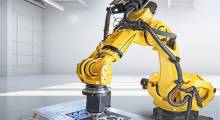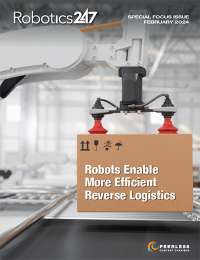Locus Robotics, a market leader in autonomous mobile robots (AMR) for fulfillment warehouses, today announced the addition of a new international client CEVA Logistics, one of the world’s leading asset-light based supply chain management companies.
CEVA has deployed autonomous mobile robots from Locus at its Roosendaal, Netherlands location to handle online order fulfillment for their retail partner selling household and consumer goods.
“At CEVA we are committed to innovation for our business and our people,” said Bart Beeks, Managing Director of North Europe, CEVA. “The addition of Locus to our operation is helping us to quickly achieve that vision.”
Since launching the Locus solution in January 2020, CEVA is already closing in on 1-million-units-picked. Locus has helped to dramatically increase worker productivity and improve the overall workplace quality, and underscoring CEVA’s vision as an industry innovator.
“Locus Robotics is proud to welcome CEVA Logistics as a new customer, supporting the company’s warehouse operations in the Netherlands” said Rick Faulk, Chief Executive Officer, Locus Robotics. “Our purpose-built robotics solution seamlessly addresses the needs of CEVA’s
high-growth, high-volume warehouse; and has already led to significant productivity gains and increases in fulfillment accuracy. We look forward to continuing to work with them to drive operational efficiencies.”
Locus Robotics has quickly become the leading warehouse robotics solution provider for retailers and third-party logistics (3PL) operators worldwide that are looking to meet the shifting demands of the booming e-commerce market. Global ecommerce sales are expected to top $4.2 trillion USD in 2020 and reach more than $6.5 trillion by 2023, with more than 2.1 billion shoppers are expected to purchase goods and services online by 2021 (Statistica). Locus’s collaborative robots work safely with human employees, driving productivity to ensure that retail companies and third-party logistics (3PL) providers can keep up with higher volume and increasing consumer demand, despite the widespread scarcity of warehouse labor.
Article topics
Email Sign Up



















